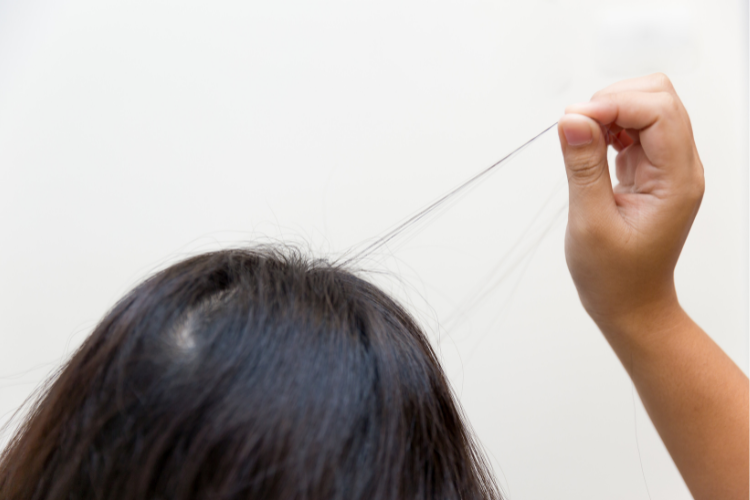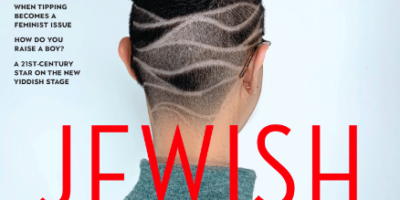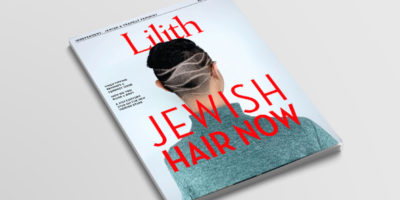
Hair-Pulling
Before my hair was patchy and thinned out from years of trichotillomania, the body-focused repetitive behavior of hair-pulling, I took unabashed pride in the fact that I was blessed with “good” hair. As a young girl I was acutely aware that my intelligence and confidence both came at a price. I was “gifted” and “an old soul,” but I was also a “know it all,” a “bitch,” a girl whose fourth-grade teacher urged her mother to “reel in.” My enviable brunette tresses— abundant, smooth in texture—produced a guilt-free external validation I didn’t otherwise experience as a high-achieving, precocious little girl.
As a teen at Jewish summer camp, I won the yearbook superlative for “Best Hair” long after the pulling began but some time before it affected my hair’s outward appearance. I didn’t have stereotypical “Jewish” hair, the kind imagined as frizzy or rough. When I reflect on the joy I took in this “natural blessing,” I’m ashamed of my participation in a tradition of white supremacist beauty standards. I’m ashamed of my own internalized anti-Semitism—Adrienne Rich’s “Split at the Root” provides much punny insight, here—and I’m ashamed of my complicity in racism against people of color who fight, still today, for the acceptance and celebration of their beautiful, natural hair.
In college, where childhood slowly ends, my feminist education coincided with the rapid disappearance of my hair. Much has been written on loss and childhood: the loss of innocence; of shamelessness; of the imagination; of naïveté. But the steady progression of my hair pulling into young adulthood produced a strange, different kind of loss. It was not simply a loss of hair but also of my ability to trust those around me wholly. My connectivity slowly severed, torn asunder like hairs ripped from the body. As I tried to grow into myself, I mourned the interrupted growth of my signature hair and found its absence created a distance between me and other people. I became hyper-vigilant at the slightest glance away from my eyes and up towards my hairline. Can they see? Do they know?
One night during my freshman year, I sat cross-legged in a circle with fifty other young women in the candlelit basement of our sorority house. The carpet cold and rough, we were expected to divulge our innermost struggles and traumas to expedite the bonding process, whereby strangers become fast, comfortable friends through shared emotional experience. This sort of bonding activity was familiar to me, as I’d grown up at a Jewish sleep-away camp better known for its commitment to friendship than sports. Even still, I was nervous and probably ripped a few hairs from my head as my heart rate increased and the sharing began.
Across the circle early on in the night, a then-future friend confidently announced that she had trichotillomania, a hair-pulling disorder, which manifested in pulling hair from her eyebrows and eyelashes. She even described, in detail, the therapies and medications she had tried over the years to help cope with the pulling. Mortified and awestruck by her ability to speak with such poise about a struggle I shared secretly, I said nothing to her that night or thereafter. Instead I cried in silent solidarity, weeping not for a bygone, “beautiful” version of myself but for the me I wanted to be then and still want to be now. Not necessarily the me who never pulls her hair, or the me who can share her feelings out loud without choking up. The me I wept for is the one who is working, still, on letting people in, on being gentle with herself and on whittling away at the stigma she assumes from the world and carries each day.
Jamie Zabinsky is an incoming English Ph.D. candidate at the CUNY Graduate Center in New York City, where she writes about feminism, activism and culture.



